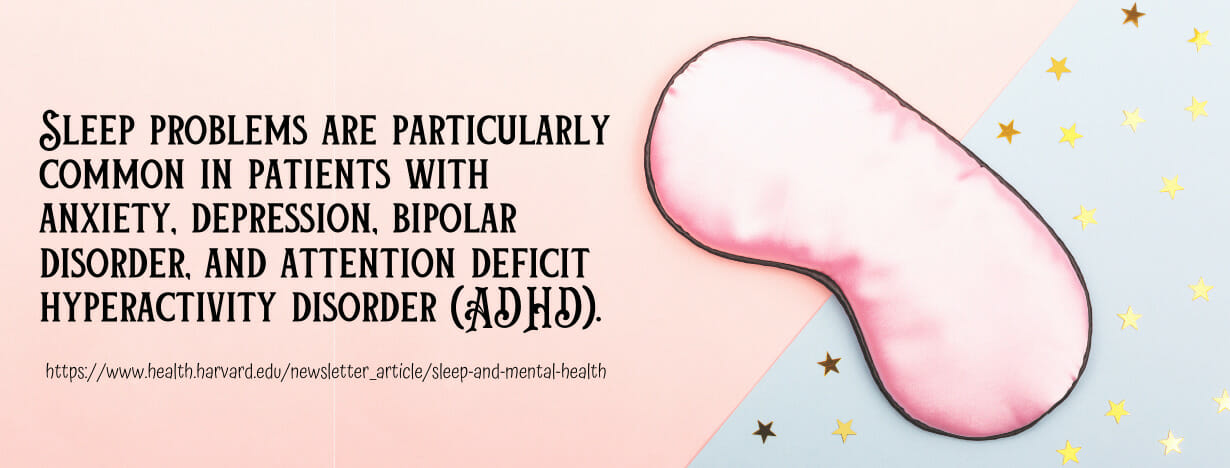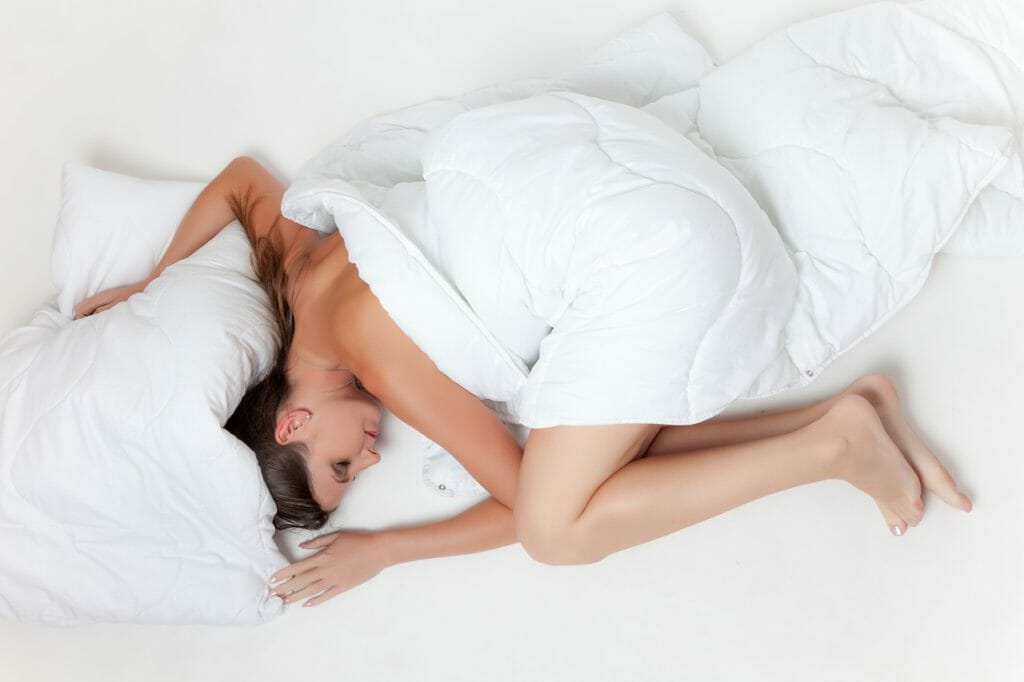
Maintaining good mental health is simply impossible in the long run without the proper amount of sleep. Sleep is both productive and restorative, meaning it actively produces important hormones and also repairs any damage the day may have done. Not getting enough sleep has been associated with all manner of emotional disturbance, so its importance cannot be overstated. While it’s not always clear where the line is between causation and correlation, study upon study shows people are simply more likely to be mentally healthy if they are sleeping enough at night.

Attention Deficit Hyperactivity Disorder (ADHD)
While it is not uncommon for people to have trouble sleeping, people with ADHD suffer at a far greater rate than the general population. The problem is, those of us with ADHD suffer from a lack of sleep, which often makes the symptoms of ADHD worse, which can further decrease the person’s lack of sleep, and so on. It’s a bit of a self-fulfilling prophecy, and these people suffer all the more for it.
When talking about ADHD, we’d be remiss if we didn’t focus on children. Kids with ADHD are two to three times more likely to suffer from a lack of sleep than children without the disorder, but what can be done to ensure children with ADHD get all the sleep they can? The tips are similar to what you’d tell someone even without ADHD, though children with ADHD should hold more strictly to these guidelines. First, put the phone away. In fact, put all screens away. This will help stop the distractions these cause. Second, stick to a schedule. While binge-watching that show might seem like a good idea now, children’s’ minds will thank them in the morning when they can think clearly and avoid an exaggerated presentation of ADHD symptoms. Finally, eat and drink with sleep in mind. Children (or, more likely, the people feeding them) should remember that their bodies will spend the night digesting what they ingest, so be careful with what you ask them to do.
National Sleep Foundation: ADHD
ADHD and Sleep Disorders: Are Kids Getting Misdiagnosed?
How ADHD Affects Kids’ Sleep and What You Can Do
Anxiety
Over 40 million Americans suffer some type of sleep disorder, and studies have shown anxiety disorder can make things worse. Unfortunately, anxiety disorder and sleep disorders such as insomnia go hand in hand, so it’s important that anyone with anxiety arms themselves with knowledge as much as possible.
Much like ADHD and sleep disorders, it can be difficult to determine which comes first, but the fact of the matter is, when it comes to addressing a lack of sleep, it doesn’t matter. For the most part, treatment doesn’t change with causation. Treatments can vary between the clinical and the behavioral, but in general, the most common treatments you’ll see for sleep disorders in conjunction with anxiety are sleep medicine and therapy, especially cognitive-behavior therapy. Cognitive-behavior therapy teaches how to modify the types of behaviors that can negatively impact sleep.
Chronic Anxiety and Sleep Problems
Trouble Sleeping at Night Due to Anxiety
A Vicious Cycle: Insomnia, Anxiety, and Depression
Bipolar Disorder
As with many mental disorders, bipolar disorder can affect sleep in a multitude of ways. The anxiety produced by bipolar disorder can lead to severe and debilitating insomnia. On the other hand, the depression brought on by bipolar disorder can lead to hypersomnia, or over-sleeping. Neither is good for your mental or physical health and need to be addressed if the disorder affects you in this way.
Further, these sleep issues, which are in many cases caused by bipolar disorder, can co-occur with other common issues, such as sleep apnea. Sleep apnea, or stopping breathing when sleeping, can cause excessive tiredness the next day and exacerbate the symptoms of both the bipolar disorder and the sleep issues they cause.
The Connection Between Sleep and Mental Health
Sleep Loss as a Trigger of Mood Episodes in Bipolar Disorder
Sleep Disturbance in Bipolar Disorder
Consistent Routines May Ease Bipolar Disorder
Insomnia and Psychiatric Disorders
Sleep Disorders and Mental Illness Go Hand In Hand
Depression
While we all know what it is to be sad, even for days on end, depression can take emotions like sadness, hopelessness, and anxiety, to the next level. When you become consumed with these emotions, you may be diagnosed with depression, and this depression can have an adverse relationship with any healthy sleep habits you may have. Depression affects people in a wide variety of ways. It can affect the way someone behaves, eats, and sleeps.
Insomnia is likely to either co-occur with depression or be caused by it. This lack of sleep, like every other disorder mentioned in this article, can exacerbate the effect depression has on all aspects of life. Like with bipolar disorder, sleep apnea also tends to be an issue for people with depression.
How to Get a Better Night’s Sleep with Depression
Lack of Sleep and Depression: Causes and Treatment Options
Depression and Sleep Disorders
Depression and Sleep: Pathophysiology and Treatment
Social Media Use Tied to Sleep Problems and Depression